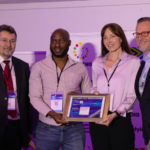The power and influence that young people have in being advocates for change in lifestyle and choices when dealing with HIV/AIDS must not be underestimated, National Assembly House Chairperson for Committees, Oversight and Information and Communications Technology (ICT), Cedric Frolick, says.
Frolick was speaking at an intergenerational dialogue on the importance of advocacy in dealing with HIV/AIDS.
The dialogue was facilitated by Joint United Nations Programme on HIV/AIDS (UNAIDS) South Africa Country Office, in collaboration with the Department of Basic Education and supported by the South African National AIDS Council (SANAC).
The dialogue, which was attended by learners and students representing Gauteng, KwaZulu-Natal and Western Cape, aimed to boost the visibility of the Education Plus Initiative (EPI) by amplifying the voices of young women and youth with an emphasis on capacity building on advocacy.
It also aimed at strengthening their engagement in co-creating the initiative through discussions with communities, leaders and the broader public.
“We must not underestimate the power and influence that young people have in our society in being advocates for change in lifestyle and change in choices. Parliamentarians, too, must be constantly aware of the changed behaviour and matters that affect them directly as far as their health is concerned broadly, and HIV/Aids specifically,” Frolick said.
He said the deliberations between the Members of Parliament and youth representatives led by the UNAIDS and representatives from Basic Education are key, so that they can push forward with the agenda and young people understand their role and function in society.
Launched by Basic Education Deputy Minister, Dr Reginah Mhaule in March this year, EPI aimed at stepping-up investments in a holistic, multi-sectoral approach around the core elements of female empowerment and gender equality.
It focuses on critical enablers through a two-pronged strategy.
The first strategy ensures that girls complete quality secondary education through investments for the rollout of free universal access, as well as ending discriminatory policies, laws and practices that deny girls their right to education.
The second strategy includes that the educational systems will be leveraged as strategic entry points for advancing gender equity and the empowerment of all adolescent girls and young women by 2025.
During a dialogue, the learners informed the MPs of the various barriers to quality education that they faced in the schooling environment, which includes lack of access to menstrual health services and contraceptives, or being forced to take contraceptives without proper explanation of the side effects and related risks.
The learners also highlighted lack of proper infrastructure including laboratories and sports facilities, lack of security due to no fence around the perimeter of the school, substandard feeding schemes or none at all in some schools, amongst others.
The dialogues target political leadership at the national and provincial levels, traditional and faith-based leaders, urban and remote communities, and young people across the country through bilateral and multilateral meetings.
The Initiative unites the efforts by United Nations (UN) institutions, including United Nations Children’s Fund (UNICEF), United Nations Educational, Scientific and Cultural Organization (UNESCO), UN Women, United Nations Population Fund (UNFPA) and UNAIDS.












